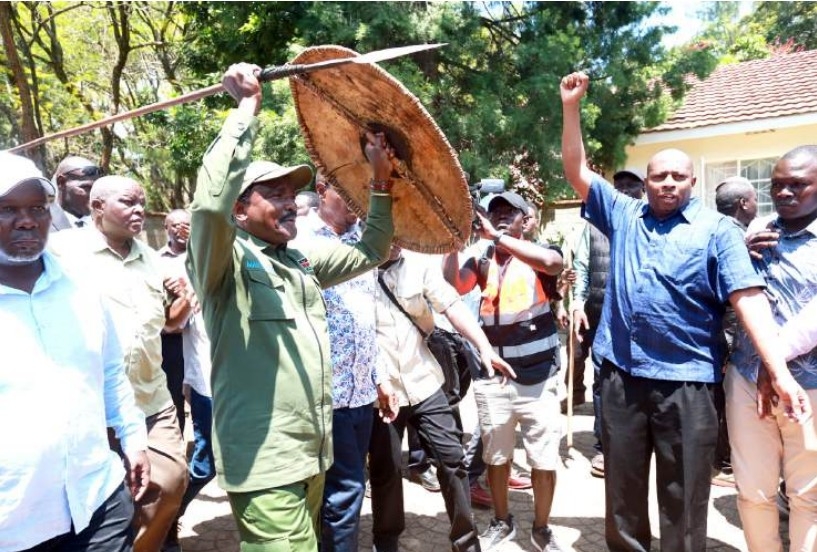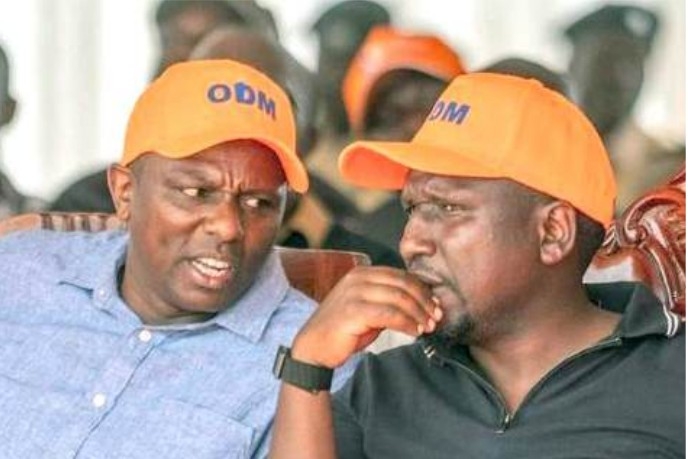Suppliers queuing for government to pay for goods and services they rendered to ministries, departments and agencies will have to wait longer.
This was after the team formed to verify their claims for payment failed to meet the deadline set by National Treasury CS Njuguna Ndung’u.
The team, led by former Auditor General Edward Ouko, was to conclude the first review and recommend bills for payment by December 30.
According to their terms of reference, the team was to hand over an interim report within three months.
“The committee shall prepare and submit to the Cabinet Secretary to the National Treasury and Economic Planning within three months after the date of its gazettement, an interim report recommending to the National Treasury settlement or otherwise of pending bills that have been scrutinised,” the September 30 notice reads.
Going by the timelines set in the notice, the Ouko-led team ought to have issued the report by December 30, meaning some suppliers would have already been paid.
But as of yesterday, no report was out yet meaning most of the suppliers who crossed the year with empty pockets were yet to be paid.
Latest Quarterly Economic and Budget Review report by the National Treasury showed that as of September 30, 2023, the total outstanding national government pending bills was Sh630.6 billion.
State corporations had the highest portion at Sh509.4 billion (73.9 per cent), while MDAs were yet to pay Sh121.2 billion (26.1 per cent).
County governments were yet to pay Sh163 billion as at that time, bringing the total bills to about Sh795 billion.
The state corporations pending bills included payment to contractors and projects, suppliers, unremitted statutory and other deductions, and pension arrears.
“Ministries, state departments and other government agencies pending bills constitutes mainly of historical pending bills,” Treasury said.
It called on all MDAs “to prioritise payment of the pending bills by settling them as a first charge in the current financial year budget”.
Despite the call, a review by the Controller of Budget covering the first quarter of the current financial year revealed that no pending bills were settled in that period.
Even as the deadline for paying some of these troubled debts was cruising by, the review committee was yet to begin its work.
It was until late December that the chairperson of the review committee made the call to MDAs to submit information regarding their stock of pending bills.
State agencies are required to furnish the committee with details of all pending bills for recurrent and development votes.
MDAs were also to supply all procurement, contracting, implementation and contract certification documents as well as give reasons why the bills have remained unpaid.
As per the notice, the last batch of the material would be received by the committee on February 2, which is 32 days past the set deadline.
The schedule shows that the first lot would be received from January 29. The material would be received per sector or cluster.
Ouko’s team has acknowledge the time crunch and has asked the teams to submit the required material in the set time.
“The committee has strict timelines to complete its work, it would be appreciated if the information requested in this public notice is submitted to reach the committee on the stipulated date indicated against your ministry/state department/agency/institution,” the notice reads.
Ouko sought that the teams provide any other necessary information, which may assist his committee in analysing the bills.
“This information should be submitted to the undersigned in both soft and hard copies by the accounting officers of the respective entities,” he said in a notice to all accounting officers.
But in what signals the laborious process that is lying in wait for the team, the entities would be invited to defend the bills individually.
“Respective ministries, departments and agencies will be notified of the date that they will be required to attend in-person meetings with the pending bills verification committee to present their pending bills,” Ouko said.
The Controller of Budget recommended that spending entities prepare payment plans for the verified pending bills for approval by the committee.
The CoB said state agencies should also follow enforcement mechanisms to ensure the approved payment plans are adhered to.
“Furthermore, the National Treasury is requested to establish measures to reduce the pending bills’ increases,” CoB said.
The Public Finance Management (County Governments) Regulations, 2015, and the corresponding one for the national government says eligible or verified pending bills are budgeted as a first charge.

















